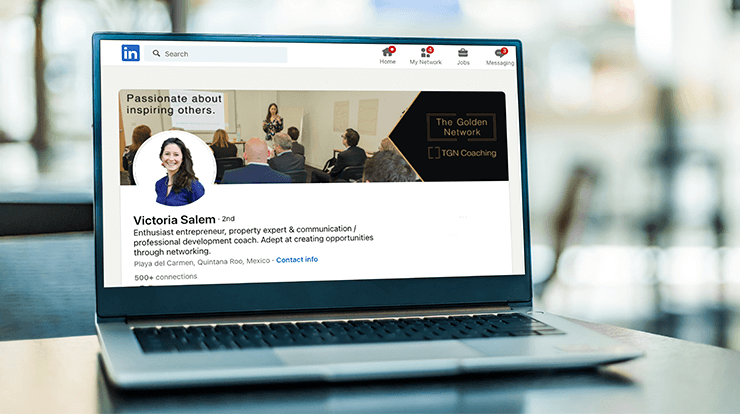
Most people don’t remember all they have done and achieved throughout their career. I’ve seen this demonstrated time and time again in my 25 years of advising individuals from more than 40 different countries on job-search strategies, tactics, and application materials.
I’ve interviewed people who couldn’t remember the details of something they listed on their résumé. While writing a cover letter in my own job search, I’ve sometimes remembered relevant experience only after I reviewed a past résumé. For these reasons and more, I recommend that you maintain a comprehensive résumé throughout your career.
When preparing for any interview, it helps to review all of your experience, making a comprehensive résumé particularly valuable.
Being Comprehensive Counts
A comprehensive résumé can be similar to a curriculum vitae, also known as a CV. In some countries, the terms “résumé” and “curriculum vitae” are used interchangeably. In places where the two are different, a résumé is a more concise document—typically one or two pages. A CV is as long as it needs to be and includes such items as research, teaching, presentations, and publications. CVs are often used in academic, medical, and scientific fields.
A comprehensive résumé—or comprehensive CV—is much more. It’s a document that lists all of your career-related experience—paid and unpaid—including part-time, consulting, contractor, internship, and volunteer positions. Provide full details of your duties and accomplishments. Many people are reluctant to include unpaid opportunities; however, those experiences can be just as relevant to your career, maybe even more so if you’re making a career transition to another industry or applying for a position in which you have volunteer experience. (See the article sidebar for more details on preparing a comprehensive résumé.)
Here are three reasons why you should maintain one:
- It helps you write targeted self-marketing materials.
Self-marketing materials can be cover letters, résumés, CVs, essays, and other job application items. Whatever you’re writing, it’s important to take the time to customize each item, always tailoring the material to the specific opportunity. This is why documenting lots of individual details about your experiences is so important—you want to have as many options as possible.When I offer feedback on application materials, I assess the job description first. I note the top skills and experiences sought and the words that are used repeatedly. Then I review the person’s materials, noting if anything emphasized in the job description hasn’t been mentioned and needs to be added.
You want to be sure that throughout your materials, you’re addressing the major skills and experiences the organization is seeking. If you can do so naturally, mimic some of the language used in the job description and organization’s materials to show your experience is aligned.
You typically don’t have a lot of space to do this, so prioritizing is key. You can review your comprehensive résumé and pick what is best to highlight, including the most relevant entries and details for each application. Having more details to choose from helps you stand out as a strong candidate.
- It helps you prepare for an interview.
When preparing for any interview, don’t just revisit the materials you submitted when applying for the job. Reviewing a comprehensive résumé will help you reflect on all of your experience. Taking time to think about your overall background and achievements will serve you well if any unexpected questions arise or the interview delves more deeply into a particular experience than you expected.You also want to prepare anecdotes highlighting your relevant accomplishments. Have two or three examples of how you’ve demonstrated each skill and experience noted in the job description. Use your comprehensive résumé as a guide to develop different examples from your career so you’re not just depending on one job to make your point. The more experience you can show that aligns with the job opportunity, the stronger case you make about your candidacy.
Reviewing your comprehensive résumé can also help you think about the questions you have for the interviewer. Reflecting on your past experiences will remind you what you need to know to make the most informed decision when evaluating the job opportunity.
- It helps you remember what you’ve accomplished.
A job search can be stressful. It’s already challenging if you’re unhappy at your current job or unemployed. It’s even more difficult if you’re not receiving any responses to applications, or you advance to the interview stage for a job you want, but you don’t receive an offer.Looking over your comprehensive résumé during a job search, or even a tough day at work, can boost your confidence. I remember working with a graduate student who expressed concern about finding a job. He doubted himself. We worked on his résumé together and developed a thorough inventory of his experiences and accomplishments. A wave of happiness and confidence washed across his face when he saw he had so much to offer an employer.
Jennifer L. Blanck, DTM , has more than 25 years of career development and advising experience. She is a member of 5-Star Toastmasters Club in Arlington, Virginia, and AAMC Toastmasters in Washington, D.C., as well as a regular contributor to the Toastmaster magazine. Learn more at jenniferlblanck.com.



 Previous
Previous

 How to Create a Comprehensive Résumé
How to Create a Comprehensive Résumé
 Previous Article
Previous Article

